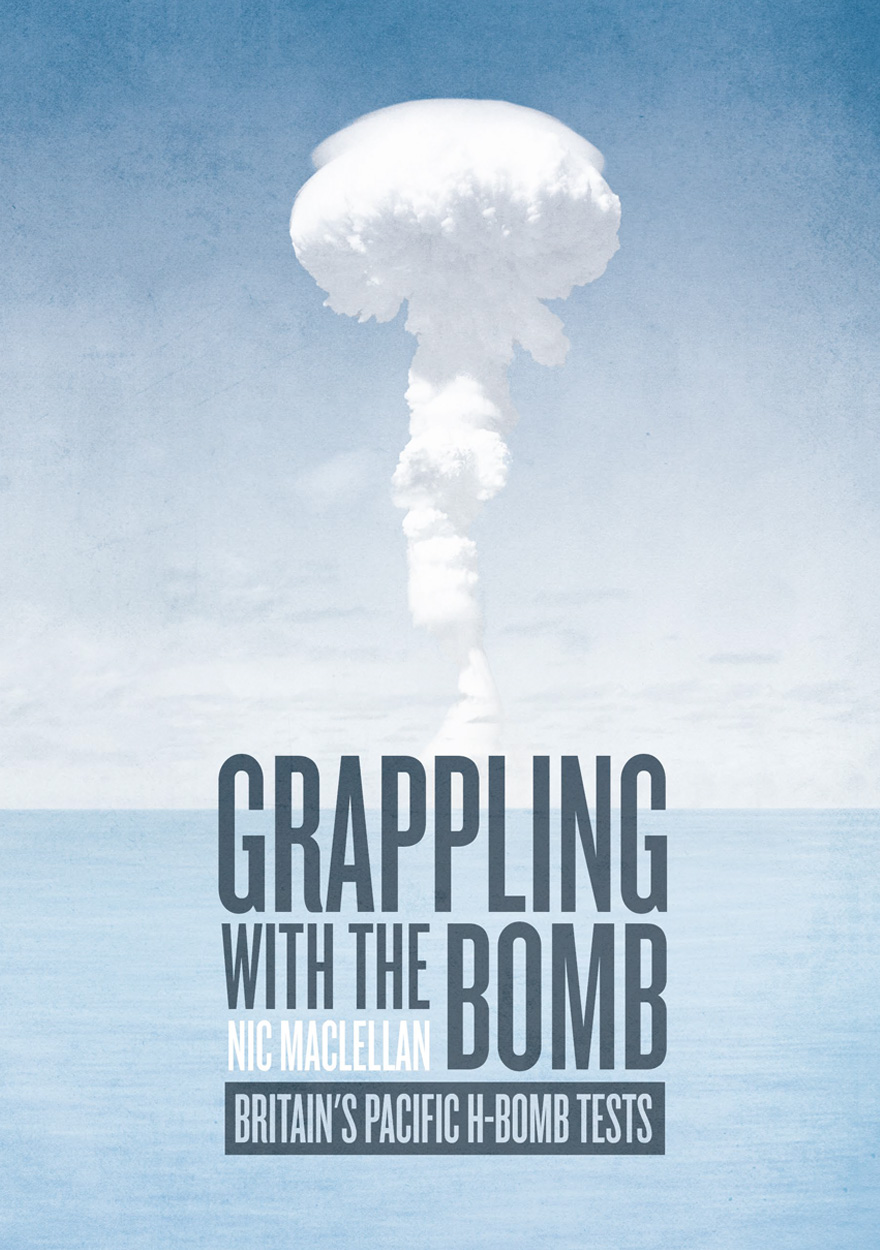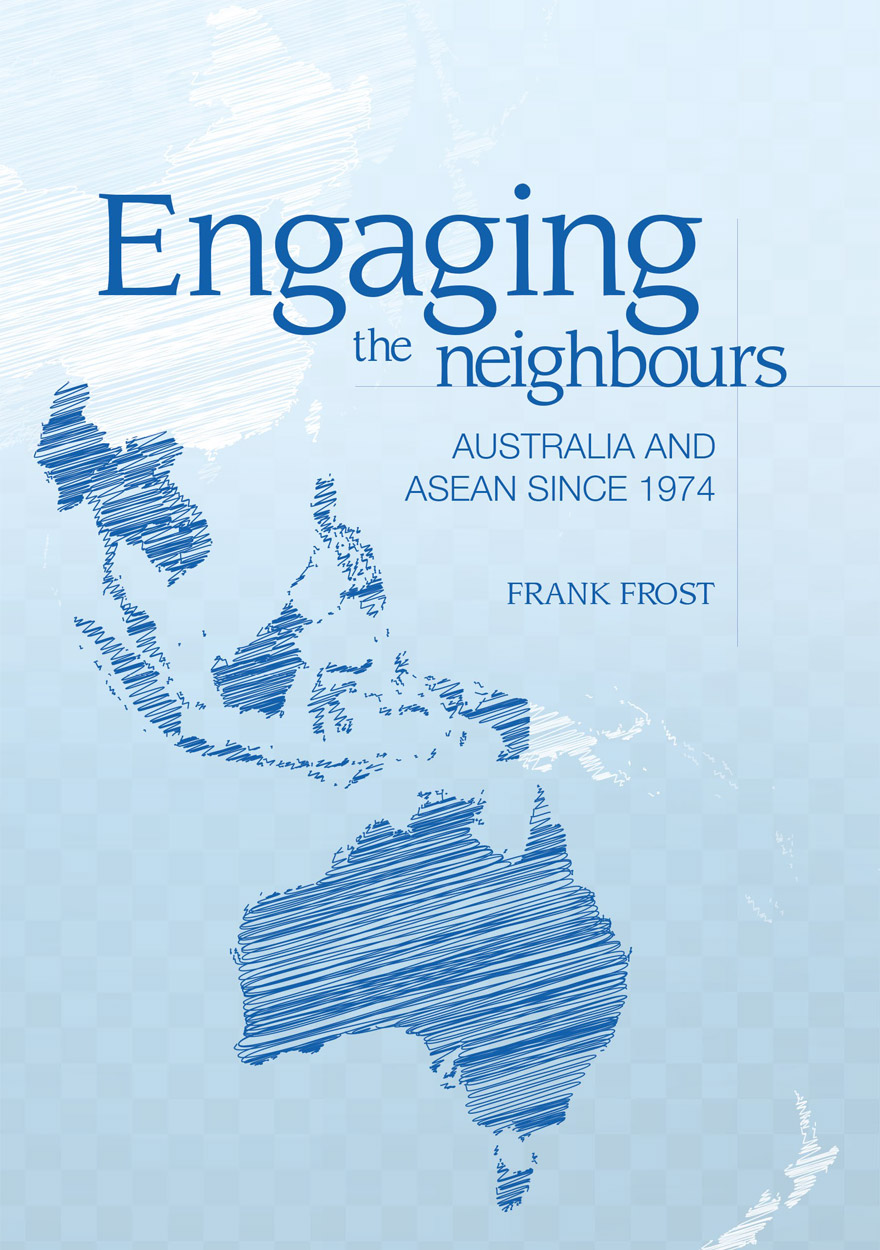Search titles
Displaying results 21 to 30 of 52.

War and Other Means »
Power and violence in Houaïlou (New Caledonia)
Authored by: Michel Naepels
Publication date: October 2017
War and Other Means describes and analyses the practices of war, the ‘objects of war’ and the conventions of the use of violence in Houaïlou, New Caledonia. It focuses on the colonial repression conducted in 1856 and after, the anti-sorcerer hunt in 1955, the independence mobilisation in the 1980s and the village feuds in the 2000s. Through this archaeology of violence, it reports on the practical inventiveness, intelligence and cunning of the Kanaks involved in social, often violent, conflicts. The use of archival material and recourse to the oral stories gathered from the inhabitants of Houaïlou restores the depth of these historical moments and the nested contexts of the political action that unfolded; it also questions the value and limits of fieldwork investigation.
These episodes are moments of change in the social, administrative, land and political organisation of New Caledonia; they make it possible to understand, from France’s takeover to the present day, the real modalities of implementation of colonial and postcolonial governmentality. The attention given to the invention, the importation or the adaptation of repressive techniques, closely linked to the French experience in Algeria, opens up a geopolitics of colonisation. Through this detailed description of the social logics of conflict, Michel Naepels also invites us to reflect on the place of European fantasies on violence and on the representations of otherness.
For the French edition, Conjurer la guerre. Violence et pouvoir à Houaïlou (Nouvelle-Calédonie), published by Éditions de l’École des hautes études en sciences sociales, please visit editions.ehess.fr/ouvrages/ouvrage/conjurer-la-guerre

Grappling with the Bomb »
Britain’s Pacific H-bomb tests
Authored by: Nic Maclellan
Publication date: September 2017
Grappling with the Bomb is a history of Britain’s 1950s program to test the hydrogen bomb, code name Operation Grapple. In 1957–58, nine atmospheric nuclear tests were held at Malden Island and Christmas Island—today, part of the Pacific nation of Kiribati. Nearly 14,000 troops travelled to the central Pacific for the UK nuclear testing program—many are still living with the health and environmental consequences.
Based on archival research and interviews with nuclear survivors, Grappling with the Bomb presents i-Kiribati woman Sui Kiritome, British pacifist Harold Steele, businessman James Burns, Fijian sailor Paul Ah Poy, English volunteers Mary and Billie Burgess and many other witnesses to Britain’s nuclear folly.

Global Allies »
Comparing US Alliances in the 21st Century
Edited by: Michael Wesley
Publication date: June 2017
The global system of alliances that the United States built after the Second World War underpinned the stability and prosperity of the postwar order. But during the 20th century, the multilateral NATO alliance system in Europe and the bilateral San Francisco alliance system in Asia rarely interacted. This changed in the early 21st century, as US allies came together to fight and stabilise conflicts in the Middle East and Central Asia. This volume presents the first-ever comparative study of US alliances in Europe and Asia from the perspectives of US allies: the challenges, opportunities and shifting dynamics of these fundamental pillars of order. This volume is essential reading for those interested in contemporary and future regional and global security dynamics.

Bridging Australia and Japan: Volume 1 »
The writings of David Sissons, historian and political scientist
Edited by: Arthur Stockwin, Keiko Tamura
Publication date: December 2016
This book represents volume one of the writings of David Sissons, who for most of his career pioneered research on the history of relations between Australia and Japan. Much of what he wrote remained unpublished at the time of his death in 2006, and so the editors have included a selection of his hitherto unpublished work along with some of his published writings. Breaking Japanese Diplomatic Codes, edited by Desmond Ball and Keiko Tamura, was published in 2013 and forms a part of the series that reproduces many of Sissons’ writings. In the current volume, the topics covered are wide. They range from contacts between the two countries as far back as the early 19th century, Japanese pearl divers in northern Australia, Japanese prostitutes in Australia, the wool trade, the notorious ‘trade diversion episode’ of 1936, and a study of the Japan historian James Murdoch.
Sissons was an extraordinarily meticulous researcher, leaving no stone unturned in his search for accuracy and completeness of understanding, and should be considered one of Australia’s major historians. His writings deal with not only diplomatic negotiations and decision-making, but also the lives of ordinary and often nameless people and their engagements with their host society. His warm humanity in recording ordinary people’s lives as well as his balanced examination of historical incidents and issues from both Australian and Japanese perspectives are a hallmark of his scholarship.

A National Asset »
50 Years of the Strategic and Defence Studies Centre
Edited by: Desmond Ball, Andrew Carr
Publication date: August 2016
This volume commemorates the 50th anniversary of the Strategic and Defence Studies Centre (SDSC). The Centre is Australia’s largest body of scholars dedicated to the analysis of the use of armed force in its political context and one of the earliest generation of post-World War II research institutions on strategic affairs. The book features chapters replete with stories of university politics, internal SDSC activities, cooperation among people with different social and political values, and conflicts between others, as well as the Centre’s public achievements. It also details the evolution of strategic studies in Australia and the contribution of academia and defence intellectuals to national defence policy.

Engaging the neighbours »
Australia and ASEAN since 1974
Authored by: Frank Frost
Publication date: July 2016
From modest beginnings in 1967, the Association of Southeast Asian Nations (ASEAN) has become the premier regional institution in Southeast Asia. The 10 members are pursuing cooperation to develop the ‘ASEAN Community’ and also sponsor wider dialogues that involve the major powers. Australia has been interested in ASEAN since its inauguration and was the first country to establish a multilateral link with the Association, in 1974. Australia and ASEAN have subsequently engaged and cooperated on many issues of mutual concern, including efforts to secure an agreement to resolve the Cambodia conflict (signed in 1991), the initiation of the Asia-Pacific Economic Cooperation grouping (1989) and the ASEAN Regional Forum (1994), the conclusion of the ASEAN–Australia–New Zealand Free Trade Agreement (signed in 2008) and the development of the East Asia Summit (from 2005).
This book provides the first available detailed history of the evolution of Australia’s interactions with ASEAN. It assesses the origins and phases of development of Australia’s relations with ASEAN; the role ASEAN has played in Australian foreign policy since the 1970s; the ways in which the two sides have collaborated, and at times disagreed, in the pursuit of regional stability and security; and the key factors that will influence the relationship as it moves into its fifth decade.

Geography, Power, Strategy and Defence Policy »
Essays in Honour of Paul Dibb
Edited by: Desmond Ball, Sheryn Lee
Publication date: May 2016
Paul Dibb AM has had an extraordinary career. He enjoys an international scholarly reputation of the highest order, while at the same time he has done much distinguished public service. He was a pioneer in moving back and forth between posts in government departments, notably the Department of Defence, and academia. He began as a student of Soviet economic geography, and then spent nearly two decades in Australian Defence intelligence, including service as Head of the National Assessments Staff (NAS) in the Joint Intelligence Organisation (JIO) from 1974 to 1978, Deputy Director of JIO in 1978–80, Director of JIO in 1986–88, and Deputy Secretary of Defence (Strategy and Intelligence) in 1988–91, before becoming a Professor in the Strategic and Defence Studies Centre (SDSC) at The Australian National University (where he is now an Emeritus Professor). He has been quite happy to engage in vigorous public debate about important and controversial strategic and defence issues, giving him a high public profile.
The contributors include two former Chancellors of ANU, one a former Minister of Defence, and the other a former Secretary of the Department of Defence, a former Chief of the Defence Force (CDF), and other former senior officials, as well as academic specialists in geography, international relations, and strategic and defence studies.
‘This would be a high-quality set of essays for any edited volume, but for a festschrift – a genre that sometimes generates uneven collections – this is an exceptional assembly. The individual pieces are very good; together, they have coherence and power.’
– Professor Ian Hall, Professor of International Relations, Griffith University

War, Strategy and History »
Essays in Honour of Professor Robert O’Neill
Edited by: Daniel Marston, Tamara Leahy
Publication date: May 2016
This is a collection of essays in honour of eminent Professor Robert O’Neill. Each chapter was written by prominent academics and practitioners who have had a professional connection with Professor O’Neill during his long and distinguished career. The overarching themes running throughout the book are war, strategy and history. All the essays are shaped by the role that Professor O’Neill has played over the last 50 years in the debates in Australia, Europe and the US. This book covers not only Professor O’Neill’s impressive career, but also the evolution of strategy in practice, and of strategic studies as an internationally recognised academic discipline.

In Defence of Country »
Life Stories of Aboriginal and Torres Strait Islander Servicemen and Women
Authored by: Noah Riseman
Publication date: January 2016
Aboriginal and Torres Strait Islander people have been protecting country since time immemorial. One way they have continued these traditions in recent times is through service in the Australian military, both overseas and within Australia. In Defence of Country presents a selection of life stories of Aboriginal and Torres Strait Islander ex-servicemen and women who served in the Australian Army, Navy and Air Force after World War Two. In their own words, participants discuss a range of issues including why they joined up; racial discrimination; the Stolen Generations; leadership; discipline; family; war and peace; education and skills development; community advocacy; and their hopes for the future of Indigenous Australia. Individually and collectively, the life stories in this book highlight the many contributions that Aboriginal and Torres Strait Islander servicemen and women have made, and continue to make, in defence of country.
For more information on Aboriginal History Inc. please visit aboriginalhistory.org.au.

The Tools of Owatatsumi »
Japan’s Ocean Surveillance and Coastal Defence Capabilities
Authored by: Desmond Ball, Richard Tanter
Publication date: January 2015
Japan is quintessentially by geography a maritime country. Maritime surveillance capabilities – underwater, shore-based and airborne – are critical to its national defence posture. This book describes and assesses these capabilities, with particular respect to the underwater segment, about which there is little strategic analysis in publicly available literature.
Since the end of the Cold War, Chinese oceanographic and navy vessels have intruded into Japanese waters with increasing frequency, not counting their activities in disputed waters such as around the Senkaku (Diaoyu) Islands and Okinotorishima where China and Japan have overlapping territorial claims. These intrusions have increasingly involved warships, including submarines, sometimes acting quite aggressively.
Japan maintains an extraordinary network of undersea hydrophone arrays, connected to shore-stations which are typically equipped with electronic intelligence (ELINT) systems, for monitoring, identifying and tracking submarine and surface traffic in its internal straits and surrounding seas. Some parts of this network are operated jointly with, and are of crucial importance to, the US Navy.
Japan’s superlative submarine detection capabilities would be of decisive advantage in any submarine engagement. But the relevant facilities are relatively vulnerable, which makes them very lucrative targets in any conflict. This introduces compelling escalatory dynamics, including the involvement of US forces and possible employment of nuclear options.



